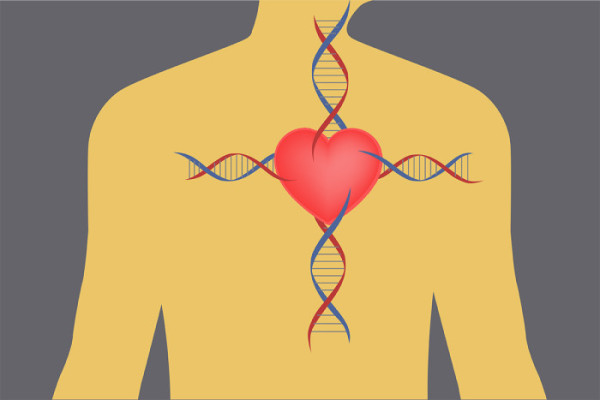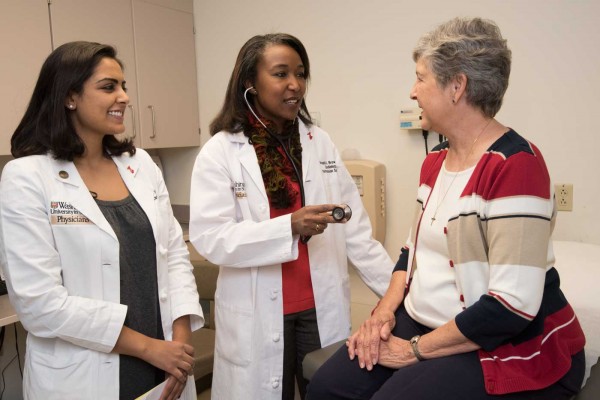Newly identified genetic errors may prevent heart attacks
A new study that included genetic data from more than 190,000 people has identified two genes that, when altered in specific ways, either promote or undermine cardiovascular health. The findings may help guide efforts to design new preventive drugs, similar to the way statins now are prescribed to lower “bad” cholesterol to reduce the risk of heart disease.
Washington People: Angela L. Brown
Angela L. Brown, MD, associate professor of medicine, leads the Hypertension Clinic at Washington University School of Medicine. Brown has devoted her career to helping patients control their hypertension and to training medical professionals in how to care for such patients.
Quitting smoking after heart attack gives quick boost to mental health, quality of life
A new study shows that quitting smoking after a heart attack has immediate benefits, including less chest pain, better quality of daily life and improved mental health. Many of these improvements became apparent as little as one month after quitting and are more pronounced after one year, according to the research led by Sharon Cresci, MD, at the School of Medicine.
Study shows who benefits most from statins
New research suggests that widely used statin therapy provides the most benefit to patients with the highest genetic risk of heart attack. Using a relatively straightforward genetic analysis, the researchers, including Nathan O. Stitziel, MD, PhD, assessed heart attack risk independently of the traditional risk factors.
Errors in single gene may protect against heart disease
Rare mutations that shut down a single gene are linked to lower cholesterol levels and a 50 percent reduction in the risk of heart attack, according to new research led by Nathan Stitziel, MD, PhD, of the School of Medicine. The gene, called NPC1L1, is of interest because it is the target of the drug ezetimibe, often prescribed to lower cholesterol.
Experimental heart attack drug reduces tissue damage, minimizes bleeding risk
An investigational drug studied in animals significantly reduced damage to heart muscle from a heart attack and minimized the risk of bleeding during follow-up treatments, according to a study by scientists at the School of Medicine. Pictured is senior author Dana Abendschein, PhD.
Panel recommends listing depression as a risk for heart disease
A panel of experts, including researchers from the School of Medicine, is recommending that depression be added to obesity, diabetes, high blood pressure and smoking as a cardiac risk factor.
Laughing gas does not increase heart attacks
Nitrous oxide — best known as laughing gas — is one of the world’s oldest and most widely used anesthetics. Despite its popularity, however, experts have questioned its impact on the risk of a heart attack during surgery or soon afterward. But those fears are unfounded, a new study indicates.
Painted turtle gets DNA decoded
Scientists have decoded the genome of the western painted turtle, one of the most abundant turtles on Earth, finding clues to their longevity and ability to survive without oxygen during long winters spent hibernating in ice-covered ponds.
Scientists first to see trafficking of immune cells in beating heart
Working in mice, surgeons and scientists at Washington University School of Medicine in St. Louis, have captured the first images of a beating heart at a resolution so detailed they can track individual immune cells swarming into the heart muscle, causing the inflammation that is so common after a heart attack or heart surgery.
View More Stories



